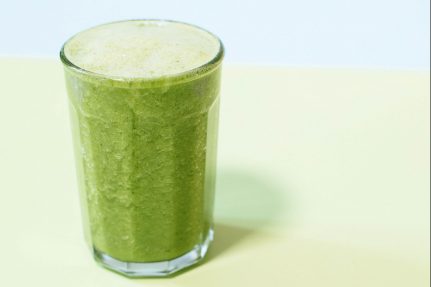What is a ketogenic (keto) diet? Is this something you should do for your health and why is it so popular?
Most diets that consistently make headlines can be written off as fads, as in not something that’s sustainable or a lifestyle. Typically there’s a celebrity name behind a diet “responsible” for making them look a certain way — it’s not long before it turns mainstream and people start wondering…should I eat this way too? Whether it’s a diet about counting calories, emphasizing restrictions, limiting important food groups without reason, or just fueling food guilt, they’re usually not something aimed at making you feel your best, for life.
“What is a ketogenic diet” is officially trending on google and we’ve received an overwhelming amount of DM’s and emails with questions about the ketogenic diet and I knew it was time to talk about what we know about the science behind ketosis, what that means for a ketogenic diet, and if that’s an optimal choice for your health. A ketogenic diet is growing in popularity as more and more people have discovered some notable positive effects of intermittent fasting — of course not suitable for some people — and its ability to assist in weight loss, possible improvements with digestion, possible improvements in cognitive function, etc.
How Did We Get Here?
The application of a ketogenic diet clinically was intended to be used to help people with epilepsy and seizures — along with most of the research covering this type of demographic. The keto diet didn’t happen overnight, as mentioned the ketogenic diet is used clinically to help several medical challenges — but what is new is the mainstream popularity. Past low-carb or carb-restrictive diets such as the Atkins, South Beach, Dukan, and some templates of Paleo gained popularity by claiming to help people lose weight fast, and while some people have those benefits and sustain some of these as a lifestyle, it begs the overall question of longevity.
So how did the ketogenic diet gain so much popularity and start trending? Maybe it was the evolution of low-carb diets (even though a keto diet primarily focused on the ratio of fat in a diet rather than carbs), the media perpetually covering the topic or genuine interest in people eating more healthy fats — we can’t say, but it’s something to ponder anytime a diet goes viral online.
What Is Ketogenic (The Diet)?
Unlike a lot of other trending diets, the ketogenic diet literally has used medical nutrition therapy as it’s framework (i.e. it’s based on nutrition science for certain health conditions). A ketogenic diet, emphasizes the amount and ratio of fat you’re eating, compared to the amount of protein or fiber. Another arm of the ketogenic diet as it’s become popular is combining this with intermittent fasting. A quick note on fasting, some researchers have explored this in conjunction with the ketogenic diet since the 1920’s for its health benefits. (1) Fasting, or consuming less than 50g of carbs a day, causes your liver to produce ketones as byproducts in order to preserve glucose and provide your cells with energy to function.
Ketosis is the goal when eating a ketogenic diet — to shift your energy source from carbohydrates (glucose) to fat (ketones).
Since the origin of the ketogenic diet, research has found links between the ketogenic diet and weight loss. (2)(3)(4) Research has shown significant findings that a ketogenic diet provides faster weight loss than a traditional low-fat diet or a Mediterranean diet. (5) A ketogenic diet has also shown an ability to improve blood sugar levels and increase insulin sensitivity for people with type 2 diabetes and raise cholesterol levels in the short term, but there is no research backing up its long-term effects on diabetes or high cholesterol. (5)
The ketogenic diet is very restrictive to most of us; think as little as 5% of your daily calories coming from carbohydrates. The average American consumes about 300g of carbohydrates per day! (6) Since it’s such a limiting diet, it’s oftentimes challenging to sustain for the long haul, which may amount to why there isn’t sufficient research yet on the long-term effects it can have on the body.
A ketogenic diet is made up of about 70-75% of your daily calories from fat, with about 20% from protein and just 5% from carbohydrate.
What Is Ketosis?
What Does Eating Ketogenic Look Like?
Most ketogenic diets include a high amount of high-fat foods such as red meat, chicken, fatty fish, poultry, eggs, butter, cream, cheese, coconut oil, MCT oil, yogurts, nuts, seeds, oils, avocados, and very small amounts of low-carbohydrate vegetables like dark leafy greens, onions, peppers, etc.
What you won’t see in a ketogenic diet is pasta, bread, porridge, oatmeal, pancakes, fruits, lots of greens or vegetables (!), legumes, root vegetables — basically so many of the foods we know are good for longevity, digestive health, and keep our microbiome healthy.
Who Needs the Ketogenic Diet?
Again, the ketogenic diet was originally created and studied to treat patients with epilepsy. (1) Researchers observed fasting’s antiseizure properties. (11)(12) For most people interested in trying a ketogenic diet could be used in the short-term, and for primary goals of weight loss, mental clarity, and a possible boost in energy. There isn’t enough research yet to determine if the ketogenic diet should be used for the long-term, and what effects it can have on the body over extended time.
What we do know about people who this isn’t for: it may not be safe for you if you’re pregnant, nursing or have a past with any type of eating disorder. If you have any state of kidney disease, pancreatic, liver or kidney issues, it’s not recommended that you start the ketogenic diet because it puts a lot of stress on your liver and kidneys, and it can worsen kidney conditions. (5) Additionally, if you have type 1 diabetes or high blood sugar, it’s not recommended that you try the ketogenic diet.
The Verdict.
A Note On Living Well…
If you want to try the ketogenic diet, it’s important to make a plan with a Registered Dietitian to ensure that your body and current health level will benefit from such a drastic change to a standard diet. This form of nutrition coaching can give you the peace of mind that you’re making an informed, smart decision about your health or weight loss goals too.
References
- Wheless, J. W. (2008, November). History of the ketogenic diet.
- Willi, S. M., Oexmann, M. J., Wright, N. M., Collop, N. A., & Key, J. R. (1998, January). The effects of a high-protein, low-fat, ketogenic diet on adolescents with morbid obesity: body composition, blood chemistries, and sleep abnormalities.
- Manninen, A. H. (2006). Very-low-carbohydrate diets and preservation of muscle mass.
- Westman, E. C., Mavropoulos, J., Yancy, W. S., & Volek, J. S. (2003, November). A review of low-carbohydrate ketogenic diets.
- Campos, M. M. (2017, July 18). Ketogenic diet: Is the ultimate low-carb diet good for you?
- Austin, G. L., & Ogden, A. L. (2011, April 01). Trends in carbohydrate, fat, and protein intakes and association with energy intake in normal-weight, overweight, and obese individuals: 1971–2006.
- Fukao, T., Lopaschuk, G. D., & Mitchell, G. A. (2004, March). Pathways and control of ketone body metabolism: on the fringe of lipid biochemistry.
- El-Mallakh, R. S., & Paskitti, M. E. (2001, December). The ketogenic diet may have mood-stabilizing properties.
- Dietary ketosis enhances memory in mild cognitive impairment. (2010, December 03).
- The effects of the ketogenic diet on behavior and cognition. (2011, August 27).
- Baranano, Hartman. The Ketogenic Diet: Uses in Epilepsy and Other Neurological Illnesses.
- , , , Effect of ketogenic diet and other dietary therapies on anti-epileptic drug concentrations in patients with epilepsy, Journal of Clinical Pharmacy and Therapeutics, 2017, 42, 6, 758
- Does “low carb” have an official definition? Examine
Let’s Hear It
Have you been curious about the ketogenic diet, whether that’s the simple question of what is ketogenic, or if it’s right for you? Have you seen success in your personal health goals while practicing a ketogenic diet? I’d love to hear from you — and so would the rest of the community — in the comments below. Connect with NS on Instagram, too, by tagging @NutritionStripped and #NutritionStripped.













